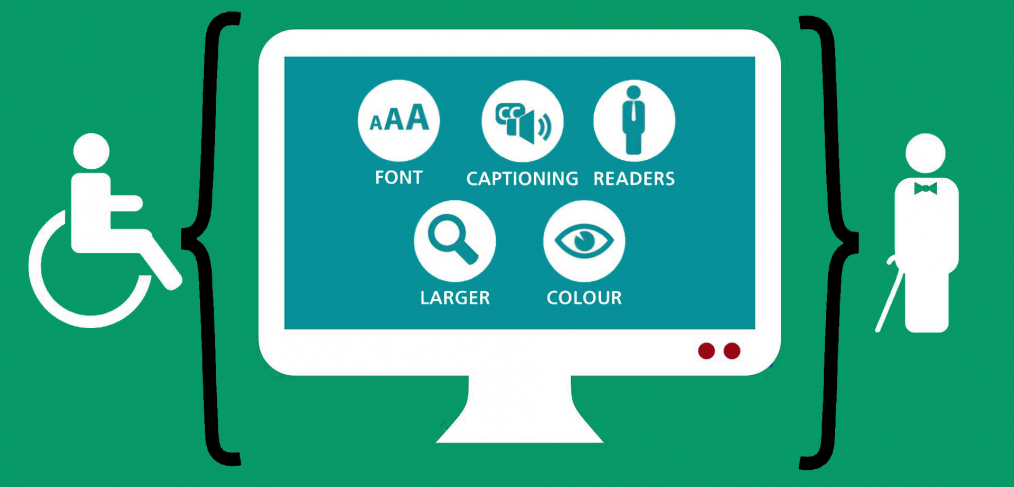A website is crucial for businesses, organizations, and people in the current digital world. Yet it’s as crucial to design a website usable by everyone, including those with disabilities. The Americans with Disabilities Act (ADA) is applicable in this situation. The ADA website accessibility and online accessibility audit will be discussed in this blog, along with what they are, why they matter, and how to make sure your website is compliant.
The Americans with Disabilities Act (ADA) was passed to shield people with impairments from discrimination. It applies to all public spaces, including online. As a result, it’s critical to ensure that your website complies with ADA standards for accessibility.
ADA Website Accessibility: What Is It?
The ADA forbids discrimination against those with disabilities in employment, transportation, and public accommodations. It was passed into law in 1990. Websites must be accessible to individuals with impairments, according to amended regulations that the Department of Justice announced in 2010. According to the ADA, people with disabilities can use and navigate websites equally as easily as people without disabilities.
The ADA was created to safeguard people with disabilities from discrimination in the workplace, public areas, and government services. Employers must also provide reasonable accommodations for people with disabilities under the ADA. This includes adjusting the workplace to make it more accessible and offering assistive devices, accessible websites, and accessible technology.
Why Is Website Accessibility ADA Important for the ADA?
Accessibility to ADA websites is important for various reasons. It is right to do it, first and foremost. Making your website accessible to those with disabilities is a step in the right direction because everyone deserves equal access to information and services. A website that is accessible can also broaden your readership and potential clientele. Also, it aids in averting any legal problems and lawsuits brought on by prejudice against people with impairments.
ADA compliance guarantees that everyone may access your website equally. For persons with disabilities to understand and use the information on your website, the ADA mandates that it be properly coded and formatted. This entails checking that the text is legible, that images have alternative text, that buttons have descriptive labels, that audio files have transcripts, and that the website can be used with a keyboard.
What is a Website accessibility audit?
An evaluation of a website’s compliance with accessibility standards is called a web accessibility audit. It entails thoroughly examining the website’s functioning, content, and design to spot potential obstacles for those with disabilities. The audit offers a thorough report detailing the problems and suggestions for fixing them.
An online accessibility audit is crucial for ensuring that websites are accessible to all users, regardless of handicap. For businesses and organizations that are required to abide by accessibility laws and regulations, this kind of audit is particularly crucial. The audit also aids firms in identifying possible areas for improvement and confirming that their websites adhere to the most recent accessibility requirements.
How to Be Certain That You’re Website Meets ADA Website Accessibility Requirements
Inspect your website to ensure it complies with ADA website accessibility guidelines. Consider any existing accessibility features, such as captions, alt text, and keyboard navigation. Determine what adjustments are required to make your website accessible if you encounter any problems.
There are various actions you can take to make sure your website complies with ADA website accessibility standards:
- For visually impaired people, utilize context-rich alt text to explain photos and graphics.
- To accommodate visitors who cannot use a mouse, ensure all website material is readable using a keyboard.
- To increase readability, use typefaces that are simple to read and have the right amount of color contrast.
- For all audio and video content, including transcripts or closed captions.
- Make sure that all interactive components and forms are usable by people with impairments.
- Use contextual link wording that is illustrative for users of assistive technology.
- To find and remove any accessibility obstacles, conduct routine web accessibility audits.
Conclusion:
Ultimately, ADA Website Accessibility and Web Accessibility Audits are crucial to ensuring that websites are accessible to all users. These audits can assist in locating any problems that might be keeping consumers from using a website. Website maintenance services Businesses can better understand how to serve the requirements of individuals with disabilities and enhance their online presence by undertaking an audit. Also, organizations should be informed about ADA compliance requirements and rules, as well as best practices for web accessibility. Website owners may make sure that all users, regardless of ability, can access their websites by using the appropriate technologies.

Average Rating